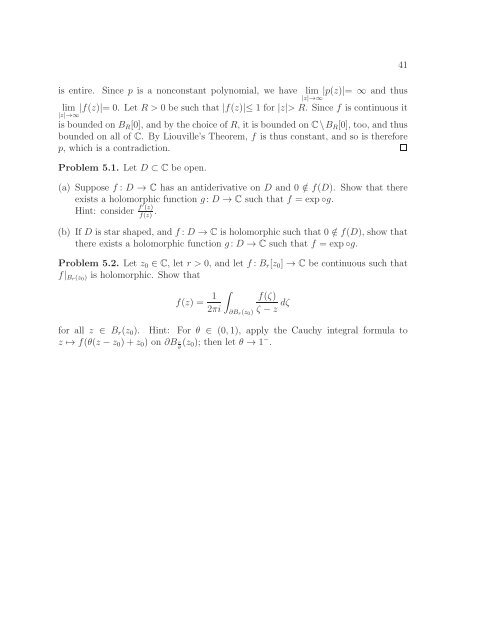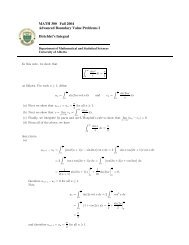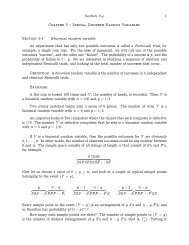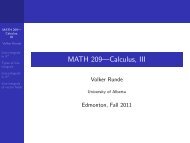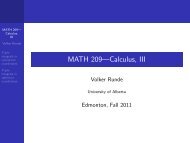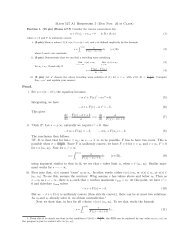Math 411: Honours Complex Variables - University of Alberta
Math 411: Honours Complex Variables - University of Alberta
Math 411: Honours Complex Variables - University of Alberta
Create successful ePaper yourself
Turn your PDF publications into a flip-book with our unique Google optimized e-Paper software.
is entire. Since p is a nonconstant polynomial, we have lim |p(z)|= ∞ and thus<br />
|z|→∞<br />
lim<br />
|z|→∞<br />
|f(z)|= 0. Let R > 0 be such that |f(z)|≤ 1 for |z|> R. Since f is continuous it<br />
is bounded on BR[0], and by the choice <strong>of</strong> R, it is bounded on C\BR[0], too, and thus<br />
bounded on all <strong>of</strong> C. By Liouville’s Theorem, f is thus constant, and so is therefore<br />
p, which is a contradiction.<br />
Problem 5.1. Let D ⊂ C be open.<br />
(a) Suppose f : D → C has an antiderivative on D and 0 /∈ f(D). Show that there<br />
exists a holomorphic function g: D → C such that f = exp◦g.<br />
Hint: consider f′ (z)<br />
f(z) .<br />
(b) If D is star shaped, and f: D → C is holomorphic such that 0 /∈ f(D), show that<br />
there exists a holomorphic function g: D → C such that f = exp◦g.<br />
Problem 5.2. Let z0 ∈ C, let r > 0, and let f: Br[z0] → C be continuous such that<br />
f|Br(z0) is holomorphic. Show that<br />
f(z) = 1<br />
�<br />
f(ζ)<br />
2πi ∂Br(z0) ζ −z dζ<br />
for all z ∈ Br(z0). Hint: For θ ∈ (0,1), apply the Cauchy integral formula to<br />
z ↦→ f(θ(z −z0)+z0) on ∂Br<br />
θ (z0); then let θ → 1 − .<br />
41


